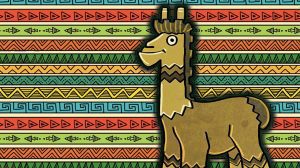Altiplano is a bag-building game along the lines of Orléans, set in the South American highlands of the Andes (the "Altiplano"). The competition for limited resources is considerable, as it was in Orléans, but the greater focus in Altiplano is on building up your own production to be the best that it can be - or at least better than that of the other players!
The object of the game is for players to use their goods to produce more goods that will be worth points in the end. Each player starts with a unique role tile, giving them access to different goods and methods of production. Players have limited access to production at the start, but they can acquire additional production sites during the game that open up new options. The various types of goods — such as fish, alpaca, cacao, silver and corn — all have their own characteristics and places where they can be used. For example, silver can be sold for a high price at the market, fish can be exchanged for other goods at the harbor and alpaca can produce wool at the farm that can then be made into cloth.
Aside from building up an effective production, players must fulfill their orders at the right time, develop the road in good time and store their goods cleverly enough to fill their warehouses in the most valuable way. Often, a good warehouse keeper is more relevant in the end than the best producer.
Some board games deserve sequels and others don’t need them. Altiplano is the sequel to Orleans, a game I already thought was very good. Read on to find out if...
Join Meeple Mountain as we welcome Richard Breese, founder of R&D Games, to the interview table!












